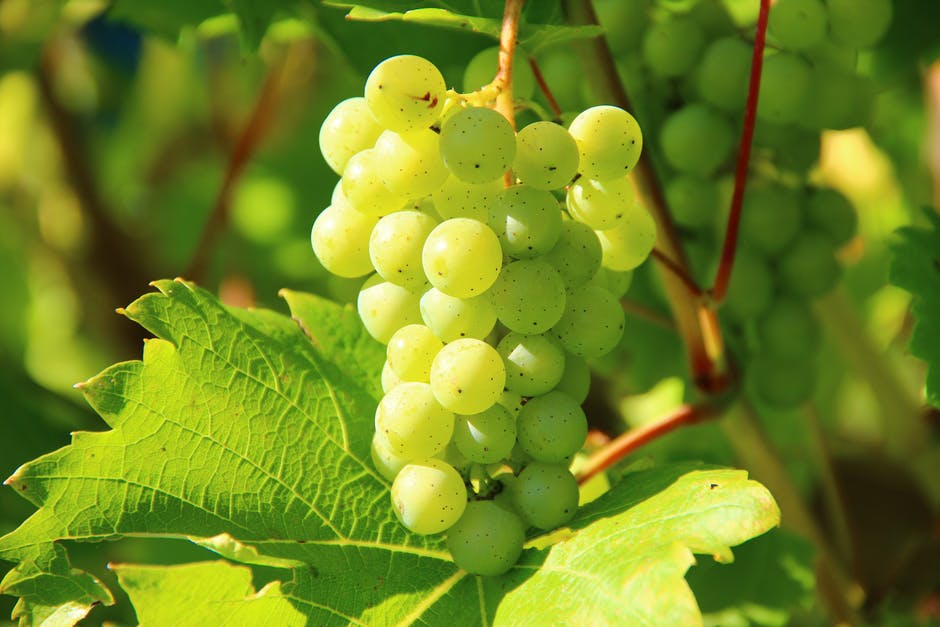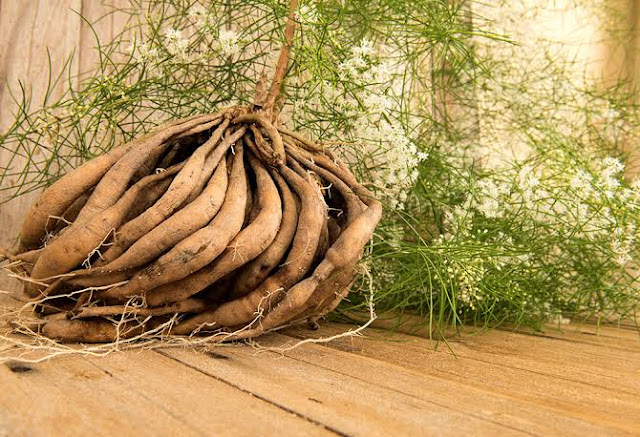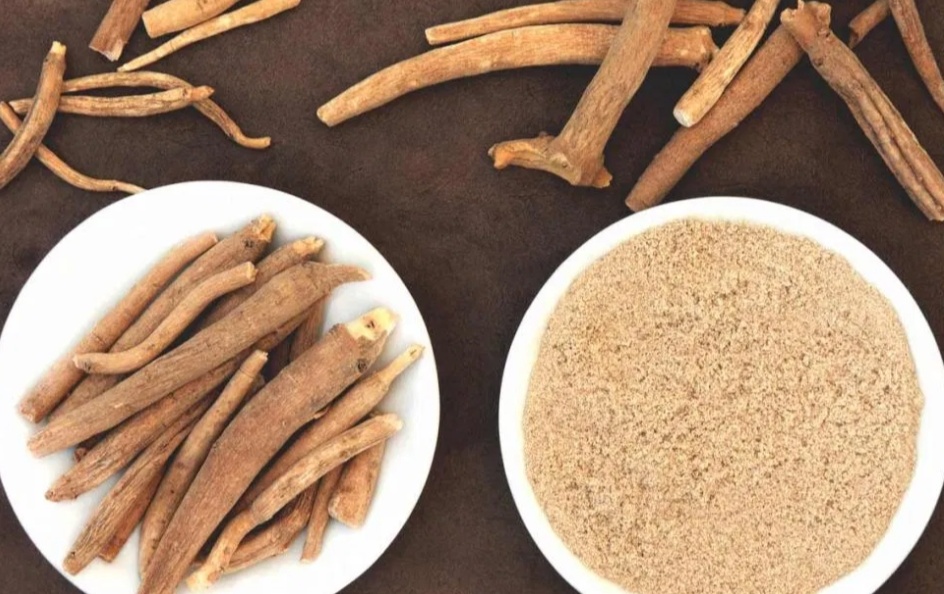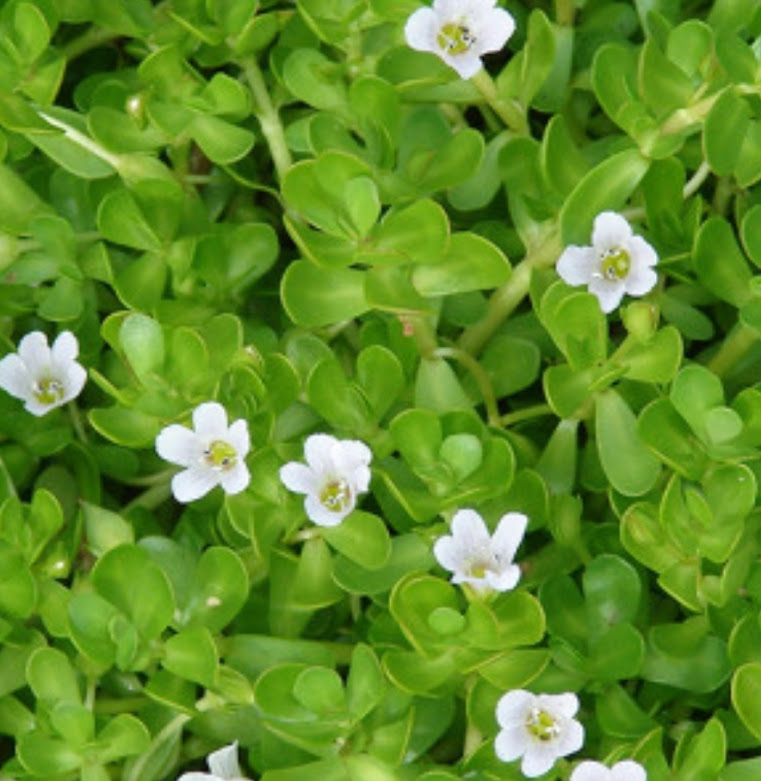Grapes/Draaksha - Health benefits, application, chemical constituents and many more
Grapes/Draaksha
Draksha is well known drug since Vedic period. In Atharva veda the Draksha in mentioned under the name of Krushana and mentioned it for the management of Rajayakshama, Kilasa, and Palita. Kautilya in his "Arthashastra" written in the fourth century BC mentioned the type of land suitable for grape cultivation. Also mentioned it as Balya, Pushatikaraka, Shukravardhaka, Mamsavardhaka, Rasa poshanakara properties. Draksha is recommended as the best among the fruits recommended in Ayurveda. Cultivated grapes are believed to have been introduced into the north of India by the Persian invaders in 1300 AD, from where they were introduced into the south (Daulatabad in Aurangabad district of Maharashtra) during the historic event of changing the capital from Delhi to Daulatabad by King Mohammed-bin-Tughlak. Ibn Batuta, a Moorish traveller who visited Daulatabad in 1430 AD, reported to have seen flourishing vineyards in south India.
It shows antioxidant, anticarcinogenic, immuno-modulatory, antidiabetes, anti-atherogenic, neuroprotective,anti-obesity, anti-aging, and anti-infection properties.
Click here for more information about Anti-oxidant and free radicals
It has different names in different languages such as Hindi name(Angoor, Dakh, Munakka, Angoor), English name(Grapes), Marathi name(Draaksha, Angoor Kakanj), Gujarati name(Darakh), Telugu name(Drākṣa), Tamil name (Tirāṭcai, kottai thiratchai), Kannada name(Drakshi, Ona Drakshi, draksi hannu), Malayalam name(muntiri, muntirippaḻaṁ, dhrakshai, gostani, mridvika), Urdu name(Aab-e-angur, angoor), Spanish name(Uvas)
Vitamins and minerals content
Vitamins : C, E, K, B1, B2, B3, B5, B6, B9, Choline
Minerals : Calcium, Iron, Magnesium, Manganese, Phosphorus, Potassium, Sodium, Zinc
• Grapes contain a wide variety of polyphenol compounds, including flavonoids, phenolic acids, and resveratrol.
- Phytochemically, whole grape represents a natural combination of resveratrol and other phytonutrients, as it contains several catechins, anthocyanins, polyphenols, and flavonols.
- Anthocyanins are the main polyphenolics in red grapes, while flavan-3-ols are more abundant in white varieties.
• Flavonoids : Grape seeds contain flavonoids (4-5%),including kaempferol-3-O-glucosides, quercetin- 3-O-glucosides, quercetin andmyricetin.
Polyphenols : Grapes are rich in polyphenols and 60 - 70% of grape polyphenols are foundin grape seeds. The grape seedpolyphenols are flavan-3-ol derivatives. The major compounds are (+)-catechins, ()- epicatechin,()-epicatechin-3-O-gallate, procyanidins dimers(B1-B5), procyanidinC1, and procyanidinB5- 32 -gallate.
Grape seeds contain procyanidins or proanthocyanidins (mostly hexamers). All of the acylatedprocyandins of grape seeds areesters of gallic acid (Fuleki and Ricardo da Silva, 1997);however, monomers of(+)-catechin, epicatechin, and epicatechin-3-O-gallate, 14 dimeric, 11 trimeric, andone tetramericprocyanidin have also been reported.
- Grape seeds are rich sources of flavonoids and contain monomers, dimers, trimers, oligomers, and polymers. The monomeric compounds includes (+)-catechins, (−)-epicatechin, and (−)-epicatechin-3-O-gallate.
Anthocyanins : The anthocyanins that have been reported for V. Viniferainclude 3-glucosides, 3- acetylglucosides,3-coumaroylglucosides, 3- caffeoylglucosides, 3,5-diglucosides, 3-acetyl-5- diglucosides, 3-coumaroyl-5-diglucosides, and 3- caffeoyl-5-diglucosidesofcyanidin,delphinidin,peonidin, petunidin,andmalvidin. Sti
Properties and benefits
> General properties of grapes
• Guna (Qualities) – Snigdha(Unctuous, oily), Guru (Heaviness),
• Rasa (Taste) – Madhura(Sweet)
• Taste conversation after digestion – Madhura(Sweet)
• Veerya(Potency) – Sheetala(Coolant)
• Effect on Tridosha – Balances Vata and Pitta
Click here for more information about Tridosha
> Sour grapes
• Ushna – Hot
• qualities - Guru(Heavy)
• Sara – induces mobility, causes diarrhea, purgation, relieves constipation
• Vataghna – useful in treating disorders of Vata Dosha imbalance such as neuralgia, paralysis, constipation, bloating, etc
• Kaphapittada – Increases Kapha and Pitta
> Ripe grapes qualities
• Snigdha – unctuous, oily
• Sara – induces mobility, causes diarrhea, purgation, relieves constipation
• Swarya – improves voice tone and quality
• Taste conversion after digestion – Madhura(Sweet)
• Potency – coolant
• Hrudya – acts as cardiac tonic, congenial for heart
• Vrushya – aphrodisiac, improves vigor
• Chakshushya – improves vision, good for eyes, useful in eye disorders
• Srushta mutra vit – increases volume of urine and feces
• Tuvara – astringent variety qualities
• Vrushya – aphrodisiac
• Pushtida – nutrition rich
> Sweet grapes
indicated in –
• Raktapitta –Bleeding disorders such as nasal bleeding, heavy periods, etc
• Tiktasya – tongue with bitter taste
• Kshata – injury, bleeding
• Kshaya – depletion of body tissues, weight loss, tuberculosis
• Jwara – fever
• Shwasa – asthma and chronic respiratory disorders
• Trushna – excessive thirst
• Daha – burning sensation, as in gastritis, neuropathy, burning sensation in eyes etc
• Madatyaya – alcoholism
• Kamala – Jaundice, Liver diseases
• Moha – delusion, dizziness
• Gostani Draksha: Is sweet in taste, cold in potency, cardio tonic and treats intoxication. It cures burning sensation, fatigue, fever,dyspnoea, thirst and excessive salivation.
• The sweet variety balances Vata and Pitta Dosha. Sour grapes increase Kapha and Pitta dosha. Unripe grapes have similar qualities as sour ones.
> In case of grapes, bael fruit and Haritaki (Harad fruit), – the dried fruits are better than the fresh.
Grapes benefits as per it's ripening
• Unripe grapes :
Unripe grapes are hot and pungent in nature, can cause Pitta imbalance, leading to skin and blood vitiation.
• Semi ripened grapes :
Semi ripened grapes are more sour than sweet. It improves appetite, improves taste.
• Ripened grapes :
Ripened grapes relieve thirst, useful in bleeding disorders, calms Pitta, it is soothing
Uses, Benefits and application
1) Rub some grape seed oil on your tongue and inside your cheeks with your fingers. Leave it overnight. Next morning, rinse your mouth with warm water and then brush your teeth. Then repeat daily before going to bed.
- It is a good and effective remedy to eliminate symptoms of dry mouth. It has a moisturizing property which coats your mouth and keeps it moist for a longer period of time. It is high in Vitamin E and thus can heal mouth sores.
2) Respiratory System : Draksha or grapes help to strengthen lungs. Expectoration of kapha or Phlegm can be very easily achieved with the help of this fruit. Thus grapes are used as main ingredients in ayurvedic preparations which are administered in respiratory conditions like Tuberculosis, cough, bronchitis etc.
3) For gastritis, acidity, oral thrush, mouth blisters : Soak five almonds and raisins in water at night. Next morning, eat the raisin and almonds on empty stomach. Make sure that the raisins are sweet in taste.
Click here for more information about Almond
4) Urinary System : Grapes act as diuretic and increase frequency and volume of urine. It soothes the inner layers of bladder. For this reason grapes are recommended in burning micturition and cystitis.
5) Effect on skin: Grapes help to reduce burning sensation of skin and skin allergies. It boosts the immunity of skin and detoxifies it. It also helps to prevent various skin diseases.
6) Burning sensations : If burning stomach or urination, or hotheadedness, drink 1 cup diluted concord grape juice with ½ tsp. cumin powder, ½ tsp. fennel powder and ½ tsp. sandalwood powder.
- This remedy is also helpful to reduce fever.
Click here for more information about Cumin seeds
Click here for more information about Fennel seeds
7) Shortness of breath, chest pain : 1 cup diluted concord grape juice with 1 tsp. honey and ½ tsp. dry ginger powder.
Click here for more information about Honey
Click here for more information about Ginger
8) Excess heat : drink 1 cup diluted concord grape juice with two tablespoons aloe vera and a few drops of rosewater.
Click here for more information Aloevera
9) Excess thirst : Instill drops of diluted concord grape juice into the nostrils.
- A ripened grape helps relieve thirst, acts as a natural coolant and has a soothing effect.
10) Semi ripened grapes tastes more sour which improves appetite and taste.
11) Even though Draksha is the main ingredient in wine making, they can reduce the hangover caused by excessive alcohol intake.
12) Reproductive system : Grapes help to increase fertility of Men and women. It increases quality and quantity of semen, sperm count and sperm motility. It also helps to strengthen the female reproductive system. These berries are known as “Vrishya”, which means they help in erectile dysfunction and premature ejaculation.
13) Nervous system : Due to their property of alleviating vata the use of grapes is recommended as nervine. It boosts memory power and acts as a brain tonic.
14) Circulatory System : These berries act as cardiac tonic. They strengthen the muscles of heart and increase the nutrient components (hemoglobin) of blood. Grapes are very useful in diseases which arise due to vitiation of rakta (blood) and pitta. Therefore the use of this fruit is recommended in Gout and allergies.
15) Digestive system : Vata and pitta regulate functions of digestive system. Since grapes alleviate vata and pitta, they are widely used in digestive disorders like constipation, jaundice and thirst.
16) Wines are produced from grapes and contains rich quantity of phenol and resveratol which enhances its health benefits.
17) Grape seeds contain 6 - 20% oil, used for edible purposes, soaps, and as a linseed substitute.The leaves of this and other species are eaten in other cultures. Sap of young branches used as remedy for skin dis- eases. Leaves astringent, used in diarrhoea.
18) Grapes with milk is avoided. As per Ayurveda, avoid eating sour fruits with milk.
If you want to give more suggestion in this, then comment us, we will replay your comment.
If you like this post, then share it and follow us on Instagram (@healthyeats793) and many thanks for coming to our site Healthy eats
keep visiting
Support us
3) Facebook
4) Pinterest
🙏🙏Subscribe and share for latest updates 🙏🙏
More posts from our site
- Click here for more information about Tamarind
- Click here for more information about Nutmeg (Jaiphal)
- Click here for more information about Viruddha aahra
- Click here for more information about Jambul (java phalam)
- Click here for more information about Marking nut (bibba)
- Click here for more Home remedies of Nirgundi
- Click here for more information about saffron
- Click here for more information about Elephant foot/Yam
- Click here for more information about Watermelon 🍉🍉
- Click here for more information about Jackfruit/phanus
- Click here for more information about summer care 🌞
- Click here for more information about Tamarind
- Click here for more information about Nutmeg (Jaiphal)
- Click here for more information about Viruddha aahra
- Click here for more information about Jambul (java phalam)
- Click here for more information about Marking nut (bibba)
- Click here for more Home remedies of Nirgundi
- Click here for more information about saffron
- Click here for more information about Elephant foot/Yam
- Click here for more information about Watermelon 🍉🍉
- Click here for more information about Jackfruit/phanus
- Click here for more information about summer care 🌞
Refrence
1) World Journal of Pharmaceutical and Medical Research ; 2020,6(10), 67-71 ; ISSN 2455-3301
2) Charaka Samhita
3) Sushruta samhita
4) Bhavaprakasha Nighantu
5) Dhanvantari Nighantu
6) Journal of Nutrition. 2009 Sep; PMCID: PMC2728695
7) International Journal of Science and Research (IJSR) ; Volume 6 Issue 3, March 2017; ISSN (Online): 2319-7064
8) A review on benefits and uses of Vitis vinifera (Grape) ; RRBS, 7(5), 2013 [175-180] ; ISSN : 0974 - 7532
9) Ann N Y Acad Sci. Published online 2015 Jun 22. PMCID: PMC4553113
10) Int J Mol Sci. Published online 2010 Feb 4. PMCID: PMC2852857
11) Local tradition and knowledge
12) Antioxidants (Basel). Published online 2017 Sep 15. PMCID: PMC5618099
13) NCBI
14) PUBMED
15) Nutrients. Published online 2014 Jan 21. PMCID: PMC3916869
16) sciencedirect.com
17) ACTA SCIENTIFIC AGRICULTURE (ISSN: 2581-365X). Volume 3 Issue 3 March 2019








Fantastic work 🔥
ReplyDeleteFruitful job Sir 🙏
ReplyDelete����������
ReplyDeleteGreat info on Grapes. It is really good that you have done thorough research on grapes, and you have even listed all their benefits on the human system. I agree that it cures mouth sores, and our doctor at https://4squaresdentistry.in/ also often recommends grapes to our clients.
ReplyDeleteWe must eat healthy and organic fresh food. It helps us to boost our immunity power and improve our health issues. There are more benefits of organic food. Organic foods have antioxidants that are nourishment to our bodies. Antioxidants prevent heart disease, cancer, vision problems, premature aging, and cognitive malfunction.
ReplyDeleteGood job
ReplyDeleteBritzone Nutrition and Health
ReplyDeleteThanks for sharing such a useful information.
ReplyDeletePre-Workout
Thanks for sharing such a useful information.
ReplyDeleteProtein Powder
I feel really happy to have seen your web-page and look forward to so many more entertaining times reading here. Thanks once more for all the details.I just liked the article. It was Very refreshing post with attractive ideas.It was great to read your blog.
ReplyDeletebirdfeed raisins in India
Thanks for sharing such a useful information
ReplyDeleteNurses Home Care gurgaon
Ambulance Services
Nursing & Home Care
WellBeing Home Care in Gurgaon
Nurses Home Care in gurgaon